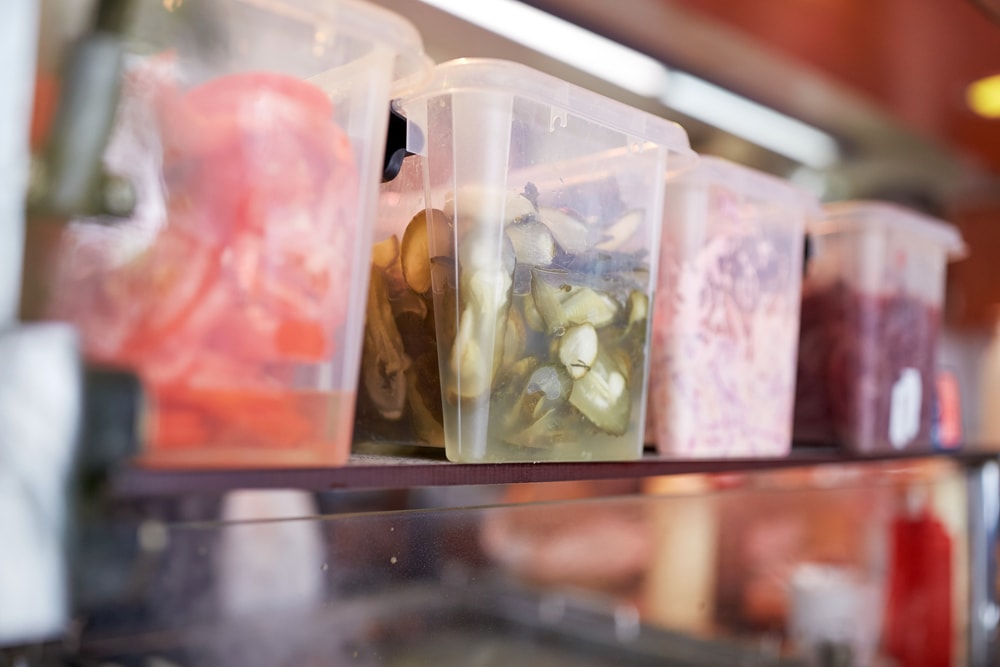Like humans, pests need food to survive. The ample food stored in restaurants can be attractive to hungry pests of many varieties. Without proper food storage, restaurants can experience inconvenient and time-consuming pest problems, as well as product damage and loss.

Why Should Restaurants Be Concerned About Pests Attacking Stored Food?
In addition to ruining food supplies, some pests can pose more serious problems:
Cockroaches can be mechanical vectors for bacteria, including E. coli and Salmonella.
Rodents can also carry pathogens that may cause disease, and unsanitary rodent droppings can contaminate equipment and food.
Flies can carry pathogens that may cause disease and spread foodborne illnesses.
Stored product pests, such as different species of beetles and moths, can breed inside food products and leave behind eggs and larvae, as well as exoskeletons and other body parts. These infestations usually go on long before they’re even noticed since the pests are sealed up in a bag. This can create unsanitary conditions and contaminate food items. These pests can attack many types of foods, including whole grains, wheat, corn, barley, rice, beans, nuts and others.
What Restaurants Can Do
According to the United States Department of Agriculture Food Safety And Inspection Service, here are some safety basics for food storage:
Always refrigerate perishable food within two hours—one hour when the temperature is above 90 °F.
Check the temperature of refrigerators and freezers with an appliance thermometer. The refrigerator should be at 40 °F or below and the freezer at 0 °F or below.
Cook or freeze fresh poultry, fish, ground meats, and variety meats within two days; beef, veal, lamb, or pork, within three to five days.
Perishable food such as meat and poultry should be wrapped securely to maintain quality and to prevent meat juices from getting onto other food.
To maintain quality when freezing meat and poultry in its original package, wrap the package again with foil or plastic wrap that is recommended for the freezer.
Canned foods are safe indefinitely as long as they are not exposed to freezing temperatures, or temperatures above 90 °F. If the cans look okay, they are safe to use. Discard cans that are dented, rusted, or swollen.
While you should consult all applicable health code and other regulations that apply to your restaurant for specific food storage guidance, here are some other tips to help prevent pest problems:
- Store all food products off the floor.
- Store all dried food goods in containers with tightly fitting lids to help prevent stored product pests from getting in and to help contain any infestations that do occur.
- Always use appropriately sized containers for the contents.
- Avoid leaving unsealed food out, especially fruit, which can attract flies.
- Check food containers for cracks, damage and loose seals to avoid leaks.
- Practice “First in, First Out”
- Keep food storage areas organized and clean. Vacuum and wipe down storage shelves and floors regularly to remove even tiny food particles.
- Educate restaurant staff about the importance of proper food storage techniques and how to recognize the signs of pest activity. Have procedures in place for notifying management immediately if pest activity or signs are observed.
- If you find pest-infested food products, discard the entire container or supply in sealed outdoor trash containers right away. Do not try to salvage any of the infested product. Thoroughly clean the shelf or storage area where the infested food was kept, and check adjacent foods and shelving for signs of infestations, too.
- Get help from a commercial pest control partner, like Terminix® Commercial, with experience in treating restaurants and stored product pests. Our knowledgeable and trained technicians can spot signs of early infestations as well as conditions that may attract the pests.



